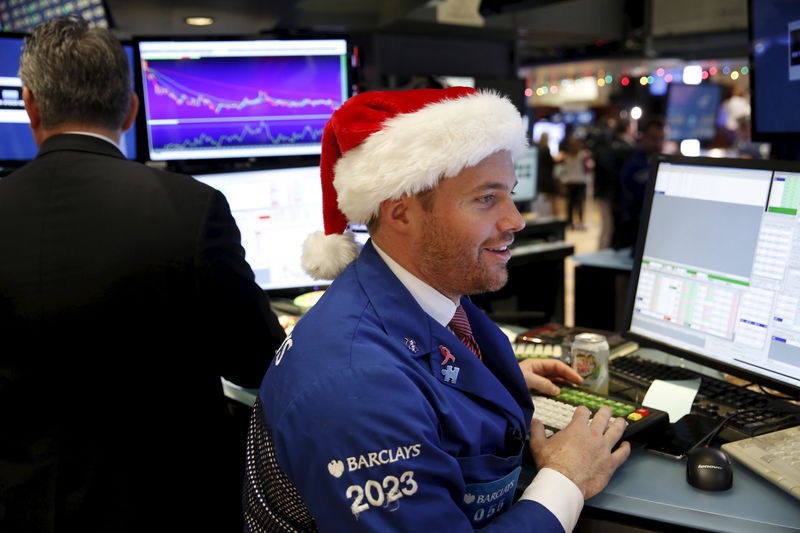
© Reuters.
By Laura Sanchez
Investing.com – European markets are up on Tuesday – , , – after some good macroeconomic data, and pending statements from central bankers about possible monetary policy strategies ahead of the December meetings.
On the other hand, pundits are already starting to bet on whether we will see a Christmas rally this year (or not).
As MarketWatch points out, at the period between now and the end of the year marks a historically bullish final stretch for U.S. stocks, especially just before and after Christmas.
Momentum toward a year-end rally in stocks appears to be getting stronger now that the is up 12.6% from its October low, boosted by better-than-expected U.S. inflation data.
According to Admiral Markets, if we look at the performance of the S&P 500 over the last 5 sessions of the year and the first 2 of the following year over the last 11 Christmases, we see that the general trend over this period is upward. “While 2014 and 2015 were down years, the average for the period 2010 to 2020 is still positive,” these experts note.
In Europe, since mid-October, we have seen a significant rally not only in the Ibex 35, but also in other European, as well as Wall Street, markets. “This raises the question of whether Santa Claus will bring us a rally as a gift this year, with a continuation of rallies that will break the fear of uncertainty,” said XTB.
These analysts also ask: “Will the price fall after the rallies that have developed since mid-October, creating an opportunity for investors who currently have few or no stocks in their portfolios and are waiting for the sales to start a new bullish wave?”
At the corporate level, there are doubts. “As we always point out, this is the time of year when many listed companies have a large part of their annual results at stake. A poor or worse-than-expected Christmas campaign would lead to a downward revision of earnings expectations for many companies, which in turn would penalize their theoretical valuations and the performance of their shares on the stock market,” Link Securities points out.


Be the first to comment